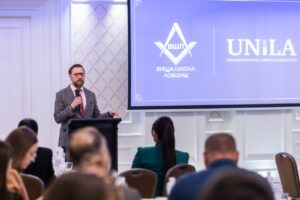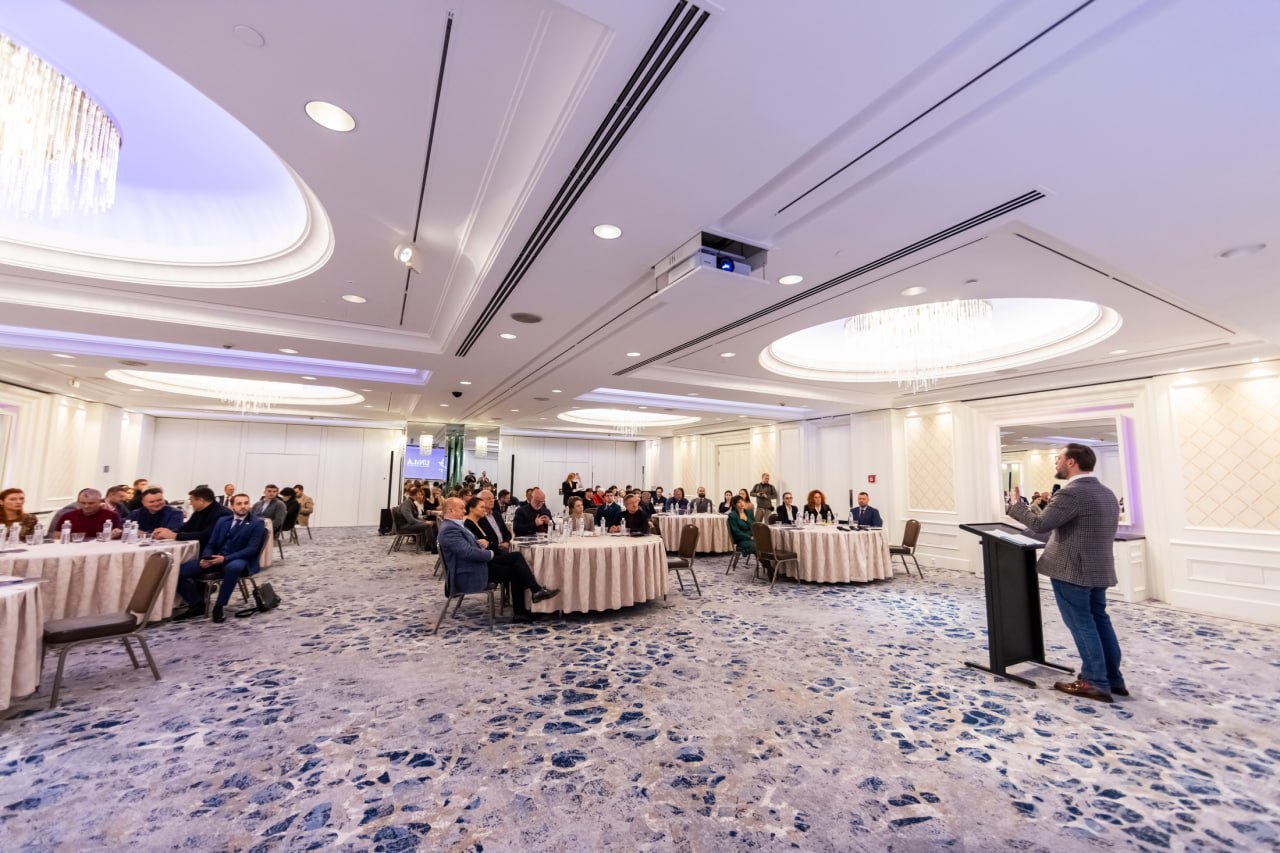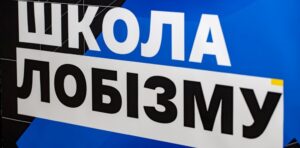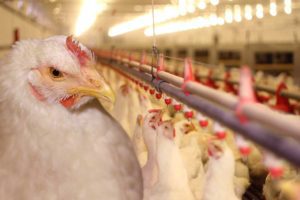
The NACP’s anti-corruption strategy for 2026-2030 needs more open discussion and transparent coordination with the public, according to Yana Tsymbalenko, anti-corruption commissioner of the National Association of Lobbyists of Ukraine and member of the Board of Trustees.
“The formation of the Anti-Corruption Strategy for 2026-2030 is a process that should be as open as possible, as it concerns the rules that determine the ethical behavior of officials, the prevention of conflicts of interest, and the standards of transparency of the state. However, analysis of the available information shows us that the public discussion of section 1.5 of the Anti-Corruption Strategy took place with numerous violations of the principles of openness and accountability,” she told Interfax-Ukraine.
Cymbalenko noted that despite the publication of the text of the strategy prepared by the NACP, “there is no evidence of full and high-quality consultations, which calls into question the legitimacy of the entire process.”
“In particular, there are no reports on the results of the discussion, no register of proposals from the public has been submitted, and updated versions of the document based on possible comments have not been published. The absence of any records or recordings of the discussion contradicts the general standards of transparency that the state declares,” she said.
The expert recalled that the “Schedule of Public Discussions” is publicly available, according to which the meeting allegedly took place on October 24, 2025. However, according to her, there were no official announcements of this event, the circle of invited stakeholders was not determined, the lists of participants or experts were not published, and it is not known who exactly prepared the materials for discussion.
“It is particularly telling that, despite the name of the division, lobbying issues were not discussed at all. This raises additional doubts about the quality and completeness of the consultations, as well as the compliance of the process with the requirements of the legislation on the formation of state anti-corruption policy,” she said, noting that the presentation of key developments was entrusted exclusively to representatives of the NACP without the involvement of independent experts, representatives of professional communities, or the public.
“The presentation focused mainly on technical aspects, while the key part concerning the regulation of lobbying in the program is completely absent. None of the speakers were presented as experts on lobbying, and the relevant topics were not included in the content of the presentations. This means that one of the most sensitive and controversial topics of the future Anti-Corruption Strategy was not even brought up for public discussion,” she said.
According to Tsymbalenko, “the event (presentation of the strategy – IF-U) looked more like a short internal presentation of the NACP’s position than a full-fledged consultation as required by the principles of transparent rule-making.”
“The NACP’s disregard for proposals from professional associations specializing in lobbying is also unacceptable. In particular, the National Association of Lobbyists of Ukraine (NALU) has repeatedly approached the NACP with a proposal to work together on establishing a lobbying institution in the country. The lack of any response from the NACP not only demonstrates disregard for the interests of the professional community, but also poses a serious reputational risk for an agency that declares openness, accountability, and integrity,” said Tsymbalenko.
“In modern democratic practices, lobbying is seen as a tool for preventing political corruption. It allows influence on government decisions to be brought out of the shadows and ensures its transparency and accountability. Combining this topic with unrelated blocks creates the risk of its simplified interpretation or a formal approach to important issues, which may devalue the potential of lobbying as a mechanism for the state’s anti-corruption capacity,” she said.

A new educational center, the Higher School of Lobbying, a structural subdivision of the National Association of Lobbyists of Ukraine, has opened in the capital. The project’s mission is to form a professional community of lobbyists in the country in accordance with EU, US, and UK standards. The premiere took place at the Hyatt Regency Kyiv, bringing together over 100 participants, including about 50 members of parliament, diplomats, representatives of international business, and academia.
A special feature of the launch is the participation of practicing lobbyists from the US and the UK, who will conduct classes together with Ukrainian experts. The program is designed as a practical track for working in the EU and US markets.
Project director Oleksiy Shevchuk said: “Lobbying is about transparent rules, competition of ideas, and investment. We are launching a school that provides tools for legal influence and open dialogue with the authorities. Our graduates must be equally confident in defending their clients’ positions in Kyiv, Brussels, and Washington, relying on facts, ethics, and compliance.”

The professional principles of the new school are:
1) Legality and transparency — working only within the public legal field, with a clear mandate and client disclosure
2) Ethics — prevention of conflicts of interest, internal compliance, and codes of conduct
3) Expertise — analytics, data, impact assessment, proposals for regulation
4) Equal access — inclusion of business, NGOs, and regions in dialogue with the state
5) Measurability — goals, KPIs, and reporting on advocacy results
Recruitment for the first cohort has begun. International mentors, workshops on preparing position papers for EU and US institutions, and analysis of real-life cases of interaction with regulators have been announced. The organizers emphasize that the school is results-oriented — graduates should bring new partnerships, investments, and sustainable changes to the rules of the game to the economy.
Historical background: how lobbying developed in the US and Europe
US. The American model is the most institutionalized. In the 19th century, the term “lobbyist” came into use to describe individuals who communicated with congressmen behind the scenes.
The modern system is based on mandatory registration of lobbyists, reporting on clients, budgets, and topics of influence, public registries, and compliance.
Principles: transparency of contacts with officials, disclosure of expenses, restrictions on gifts and travel funding, disciplinary responsibility for covert activities.
Europe. In the EU, lobbying is formalized as the participation of interested parties in policy-making. The European Commission and European Parliament have a Common Transparency Register, which requires disclosure of information about organizations and consultants, their goals and resources, and meetings with high-ranking officials are published online.
National regimes vary, but common standards include public registers, codes of ethics, tracking of influence on regulation, and impact assessments for new legislation.
Source: https://interfax.com.ua/news/projects/1119422.html

On November 7, 2025, the National Association of Lobbyists of Ukraine (NALU) and Yuridicheskaya Praktika publishing house will hold an official presentation of the opening of the Higher School of Lobbying in Ukraine. The event will be a key step in forming a new professional community of specialists working at the intersection of business, government, and civil society.
The Higher School of Lobbying was created to develop ethical, transparent, and effective practices for representing interests in public policy. Its goal is to lay the foundation for the professional training of a new generation of lobbyists who operate according to the principles of integrity, responsibility, and the rule of law.
During the event, there will be a presentation lecture on the new NALU educational course “Lobbying and Advocacy: The Art of Influencing Public Policy,” which will familiarize listeners with the training program and basic topics of the course.
Leading experts will share their knowledge:
• Lyudmila Kozhura, Doctor of Law, Professor, Director of the Vadym Hetman KNEU Law Institute — will reveal the legal basis of lobbying and international standards for its regulation.
• Iryna Shapovalova, Deputy Chair of the NALU Board, will focus on ethical standards and the culture of professional lobbying.
• Yana Tsymbalenko, Associate Professor at Igor Sikorsky KPI, expert on corruption prevention, will give a lecture on the risks of shadow lobbying and the principles of transparency.
Members of the NALU Board of Trustees, representatives of the business, legal, and educational communities will take part in the event. After the official part, there will be networking with guests and communication with teachers and project organizers.
The venue will be announced later for security reasons.
Follow the official announcements of the National Association of Lobbyists of Ukraine, register to participate, and join the community at: info@unla.org.ua.
The National Association of Lobbyists of Ukraine (NALU) brings together lawyers, financial experts, and attorneys to promote investment and protect business interests.
Yuridicheskaya Praktika is a leading Ukrainian media outlet specializing in law and jurisprudence, founded in 1995, with print and electronic versions.

Myronivsky Hliboproduct agricultural holding (MHP), whose majority shareholder and chairman of the board is Yuriy Kosiuk, has confirmed information about financing the Foundation for Support of Reforms in Ukraine by five of its enterprises, but the foundation independently decided on spending these funds, in particular on payment for the services of the U.S. lobbying company BGR in 2017-2018 for the National Reforms Council, led by the then President of Ukraine Petro Poroshenko.
“MHP companies really provided financial assistance to the Foundation for Support of Reforms in Ukraine. Financial assistance was provided to achieve the goal of the organization, namely to promote the development of Ukraine and the growth of well-being of its citizens by providing support in the development and implementation of reforms in Ukraine,” the press service of the holding told Interfax-Ukraine.
The agricultural holding said that MHP and its chairman did not used the funds provided to the Foundation for Support of Reforms to directly finance lobbying in the United States or other specific areas.
“The public organization independently determines the use of funds received from all founders and partners, taking into account the detailed directions of activity,” MHP noted.
According to the Kyiv Post edition, the administration of President Poroshenko through the Foundation for Support of Reforms in Ukraine paid for the services of American lobbyists at the expense of contributions made by Kosiuk, who at that time was a freelance adviser to the head of state, and it took $600,000 in 2017-2018. The matter concerns five agricultural firms: PrJSC Zernoproduct MHP, Vinnytsia Poultry Farm LLC, PrJSC Myronivska Poultry Farm, Research and Production Firm Urozhay LLC, and Urozhaina Kraina LLC. In addition to the money from Kosiuk, this public organization received grants of millions of dollars in support of reforms from embassies and Western donors, including American ones, Kyiv Post said.
LOBBYING, MYRONIVSKY HLIBOPRODUCT, POROSHENKO, REFORMS, SUPPORT FOUNDATION
© 2016-2026, Open4Business. All rights reserved.
All news and diagrams placed on this Web site is made for internal use. Its reproduction or distribution in any form are welcome in case of placing a direct hyperlink to a source. Reproduction or distribution of information which contains Interfax-Ukraine as a source is prohibited without the written permission from the Interfax-Ukraine news agency. Photoes placed on this site are taken from open sources only; rightholder are welcome to make demands to info@open4business.com.ua , in this case we are ready to put your copyright to a photo or replace it.